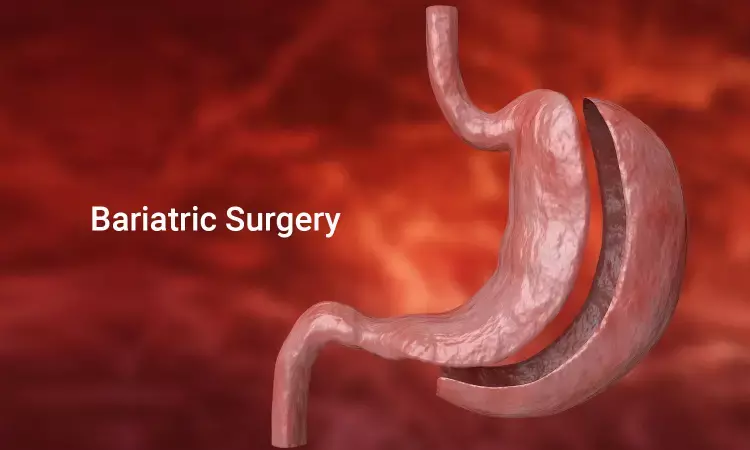- Home
- Medical news & Guidelines
- Anesthesiology
- Cardiology and CTVS
- Critical Care
- Dentistry
- Dermatology
- Diabetes and Endocrinology
- ENT
- Gastroenterology
- Medicine
- Nephrology
- Neurology
- Obstretics-Gynaecology
- Oncology
- Ophthalmology
- Orthopaedics
- Pediatrics-Neonatology
- Psychiatry
- Pulmonology
- Radiology
- Surgery
- Urology
- Laboratory Medicine
- Diet
- Nursing
- Paramedical
- Physiotherapy
- Health news
- Fact Check
- Bone Health Fact Check
- Brain Health Fact Check
- Cancer Related Fact Check
- Child Care Fact Check
- Dental and oral health fact check
- Diabetes and metabolic health fact check
- Diet and Nutrition Fact Check
- Eye and ENT Care Fact Check
- Fitness fact check
- Gut health fact check
- Heart health fact check
- Kidney health fact check
- Medical education fact check
- Men's health fact check
- Respiratory fact check
- Skin and hair care fact check
- Vaccine and Immunization fact check
- Women's health fact check
- AYUSH
- State News
- Andaman and Nicobar Islands
- Andhra Pradesh
- Arunachal Pradesh
- Assam
- Bihar
- Chandigarh
- Chattisgarh
- Dadra and Nagar Haveli
- Daman and Diu
- Delhi
- Goa
- Gujarat
- Haryana
- Himachal Pradesh
- Jammu & Kashmir
- Jharkhand
- Karnataka
- Kerala
- Ladakh
- Lakshadweep
- Madhya Pradesh
- Maharashtra
- Manipur
- Meghalaya
- Mizoram
- Nagaland
- Odisha
- Puducherry
- Punjab
- Rajasthan
- Sikkim
- Tamil Nadu
- Telangana
- Tripura
- Uttar Pradesh
- Uttrakhand
- West Bengal
- Medical Education
- Industry
Ursodeoxycholic acid fails to prevent gallstones after bariatric surgery: Lancet

Netherlands: A multicenter study by Sylke Haal, MD, and team revealed that the occurrence of symptomatic gallstone disease was not significantly reduced by ursodeoxycholic acid prophylaxis after bariatric surgery. However, ursodeoxycholic acid treatment reduced the occurrence of symptomatic gallstone disease in patients without gallstones before RYGB surgery.
The findings of the study are published in The Lancet Gastroenterology and Hepatology.
Previous studies have shown that about 10% to 25% of persons having lost weight through very low-calorie dieting (VLCD) develop gallstones. It is also reported that 35–38% of patients with morbid obesity develop gallstones as they lose weight after bariatric surgery.
The objective of the study was to evaluate the efficacy of ursodeoxycholic acid versus placebo for the prevention of symptomatic gallstone disease after bariatric surgery.
For this purpose, the researchers conducted a multicentre, double-blind, randomized, placebo-controlled trial. It enrolled patients with an intact gallbladder scheduled for laparoscopic RYGB or sleeve gastrectomy in three hospitals in the Netherlands. Patients were randomly assigned (1:1) by a web-based randomization module to receive 900 mg ursodeoxycholic acid daily for 6 months or matched placebo. The primary endpoint was symptomatic gallstone disease within 24 months. Safety was assessed in all patients who took at least one dose of the study drug.
A total of 985 patients were randomly assigned to receive either ursodeoxycholic acid (n=492) or a placebo (n=493). 967 patients were included in the modified intention-to-treat population, 189 patients had asymptomatic gallstones at baseline and 78 received a sleeve gastrectomy.
The results of the study were:
- Symptomatic gallstone disease occurred in 31 (6·5%) of 475 patients in the ursodeoxycholic acid group and in 47 (9·7%) of 484 patients in the placebo group (relative risk 0·67).
- Logistic regression showed a significant interaction between ursodeoxycholic acid and the presence of asymptomatic gallstones at baseline, with an effect of ursodeoxycholic acid in patients without (0·47), and no effect in patients with asymptomatic gallstones at baseline (1·22).
- The effect was stronger in patients without gallstones at baseline undergoing RYGB, whereas the subgroup of patients undergoing sleeve gastrectomy was too small to draw clear conclusions.
- Adverse events were rare. In the ursodeoxycholic acid group, diarrhea occurred in four (0·9%) of 444 patients and skin rash in two (0·5%) patients. In the placebo group, diarrhea occurred in two (0·4%) of 453 patients and skin rash in two (0·4%) patients.
- The total number of serious adverse events did not significantly differ between the trial groups (75 [17%] in 444 patients in the ursodeoxycholic acid group and 102 [23%] in 453 patients in the placebo group).
- The most common serious adverse events were abdominal pain and internal hernia.
- No serious adverse event was attributed to the study drug.
Haal, and the team concluded that "Ursodeoxycholic acid prophylaxis did not significantly reduce the occurrence of symptomatic gallstone disease in all patients after bariatric surgery. In patients without gallstones before RYGB surgery, ursodeoxycholic acid treatment reduced the occurrence of symptomatic gallstone disease compared with placebo. Further research is needed to assess the efficacy of ursodeoxycholic acid after sleeve gastrectomy."
DOI: https://doi.org/10.1016/S2468-1253(21)00301-0
Medical Dialogues consists of a team of passionate medical/scientific writers, led by doctors and healthcare researchers. Our team efforts to bring you updated and timely news about the important happenings of the medical and healthcare sector. Our editorial team can be reached at editorial@medicaldialogues.in.
Dr Kamal Kant Kohli-MBBS, DTCD- a chest specialist with more than 30 years of practice and a flair for writing clinical articles, Dr Kamal Kant Kohli joined Medical Dialogues as a Chief Editor of Medical News. Besides writing articles, as an editor, he proofreads and verifies all the medical content published on Medical Dialogues including those coming from journals, studies,medical conferences,guidelines etc. Email: drkohli@medicaldialogues.in. Contact no. 011-43720751


